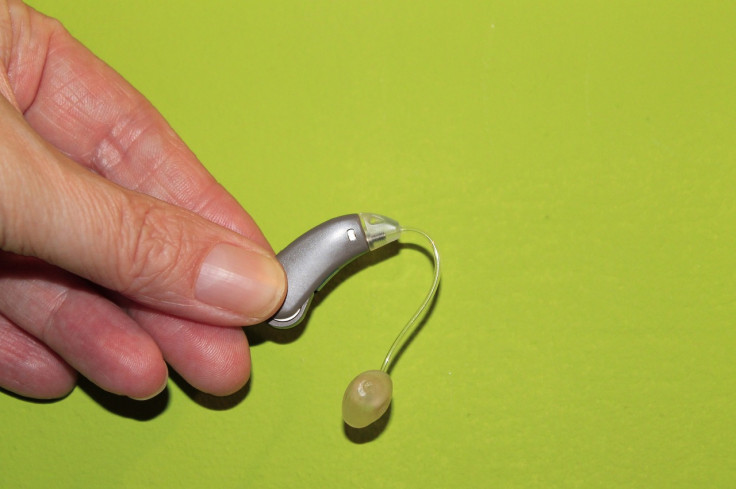Hearing Aids May Help Prevent Early Death; Study Finds 25% Reduction In Mortality Risk

The regular use of hearing aids could reduce the risk of early death in people with hearing loss, a study has found.
A person is considered to have hearing loss when they do not have hearing thresholds of 20 dB or more in both ears. By 2050, nearly 2.5 billion people may have some degree of hearing loss, and at least 700 million will require hearing rehabilitation, according to WHO.
Previous studies have shown how untreated hearing loss is linked to reduced life span and other negative outcomes, including social isolation, depression and dementia. In the latest study, published in the Lancet Healthy Longevity, researchers examined if rehabilitation with hearing aids could reduce the risk of early death.
"We found that adults with hearing loss who regularly used hearing aids had a 24% lower risk of mortality than those who never wore them. These results are exciting because they suggest that hearing aids may play a protective role in people's health and prevent early death," said Janet Choi, a lead researcher of the study, in a news release.
The team used data from the National Health and Nutrition Examination Survey to identify around 10,000 participants, aged 20 and above, who had completed audiometry evaluations, a test used to measure hearing ability. Of them, 1,863 had hearing loss. They were asked to respond to questionnaires about the use of hearing aids. Participants were then followed up for an average of 10 years to estimate the mortality status.
The survey results showed that 237 adults were regular hearing aid users, meaning they used the aids at least once a week, five hours a week or half the time, and 1,483 participants never used the device. The participants who used the device less than once a month or less frequently were considered non-regular users.
"Researchers found that the almost 25% difference in mortality risk between regular hearing aid users and never-users remained steady, regardless of variables such as the degree of hearing loss (from mild to severe); age, ethnicity, income, education, and other demographics; and medical history. There was no difference in mortality risk between non-regular users and never users, indicating that occasional hearing aid use may not provide any life-extending benefit," the news release read.
The study has not delved into the possible reason why hearing aids may help users live longer.
Based on the findings, researchers encourage more people with hearing loss to wear hearing aids, even though there are various barriers, including cost, stigma, and difficulty finding devices that fit and function well.



























